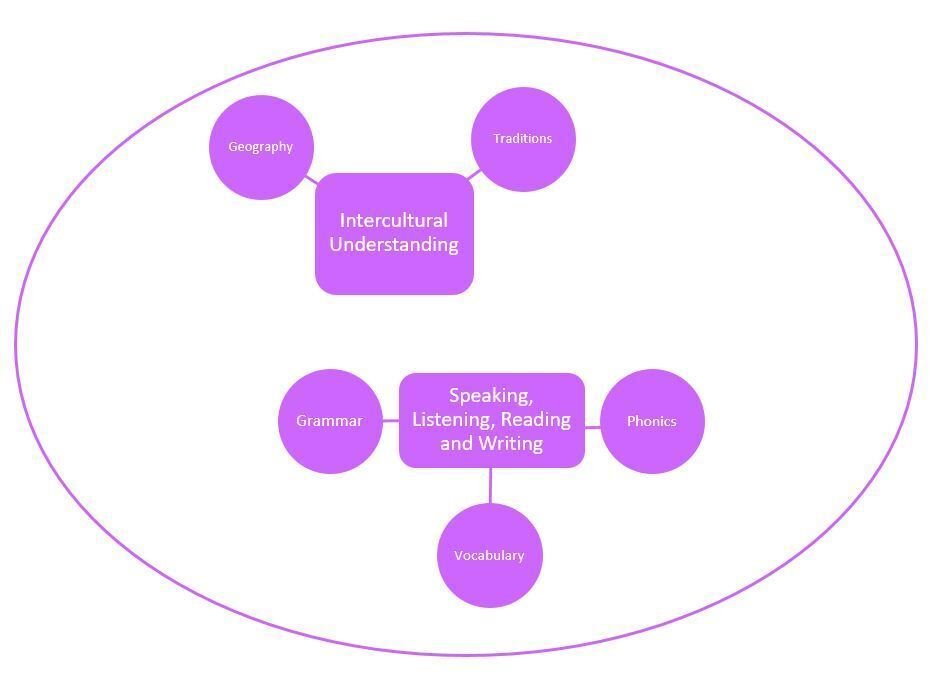Modern Foreign Languages: Spanish
Latest News
Spanish
- Thank you to all the wonderful kitchen staff for another amazing Christmas Lunch!
Spanish at London Fields
It is now compulsory for schools to teach a modern foreign language in Key Stage 2. As a borough, Hackney has chosen to teach Spanish in all primary and secondary schools. At London Fields we have made a commitment to formally teaching Spanish from Year 3 - 6. Children are introduced to Spanish vocabulary in Years 1 and 2 through songs and games.
How is Spanish taught?
The Modern Foreign Languages curriculum is designed to help pupils form a Modern Foreign Languages schema within their long-term memories.
Schema theory states that all knowledge is organised into units. A schema is, therefore, a conceptual system for understanding knowledge.
Our Modern Foreign Languages schema is a way of organising Modern Foreign Languages semantic and procedural knowledge in a meaningful way; it is an appreciation of how facts are connected and the ways in which they are connected. It is distinct from information, which is just isolated facts that have no organisational basis or links.
Big Ideas help form the basis of the schema. Big Ideas are key concepts that underpin the subject. There are two Big Ideas in Modern Foreign Languages:
- Intercultural Understanding (Understanding where the language is spoken and their cultural capital)
- Speaking, Listening, Reading and Writing (Developing vocabulary so pupils can confidently communicate)
Each Big Idea has facets of knowledge (knowledge categories) which help to strength the schema. Learning knowledge in each of the categories allows pupils to express and demonstrate their understanding of the Big Idea.
Spanish is taught as part of the weekly timetable for Y3-Y6 and during these lessons the Big Ideas are returned to over and over again so the pupils gradually build understanding of them. In EYFS and Y1 and Y2, pupils are introduced to the subject through Spanish events held during the year, texts studied and learning key phrases to greet one another.
Spanish Events
We try to have one or two language based events in the school year. These are days when Spanish takes over, and a real fiesta air permeates the school. If you would like to get involved with any of these events, contact the school and we will gladly oblige.
Spanish at Home
There are lots of ways in which you can support your child with their Spanish learning.
- Talk to a Spanish speaking friend, neighbour or teacher about their culture and traditions. Can they teach you a new Spanish word or phrase?
- Talk to your child about the Spanish they have been learning that week- can they teach you a new word or phrase?
- Look at a world map together and discuss Spanish speaking countries around the world. Can you choose one to research together?
- Practice counting in Spanish
- Explore the following websites to support your child's Spanish learning:
Calico Spanish for Kids - YouTube














